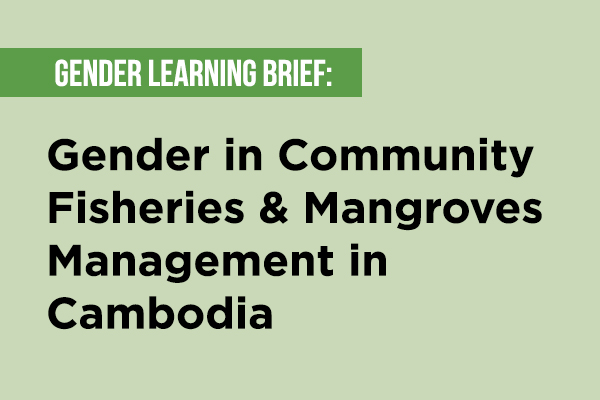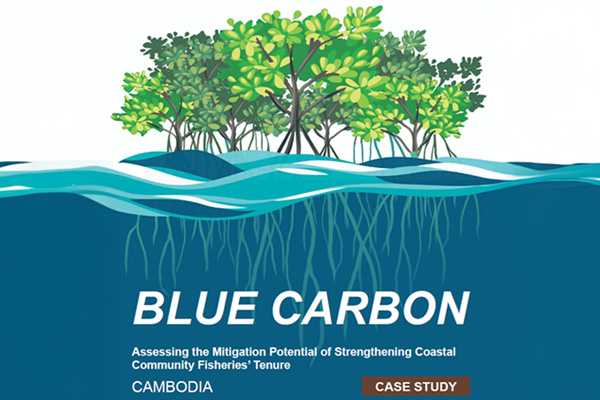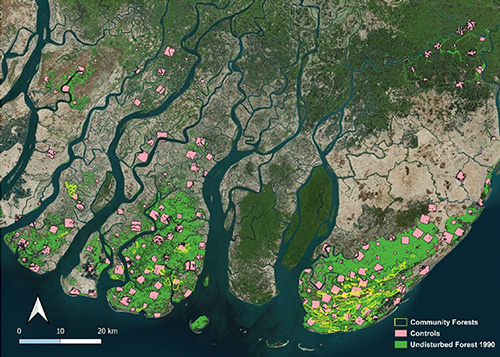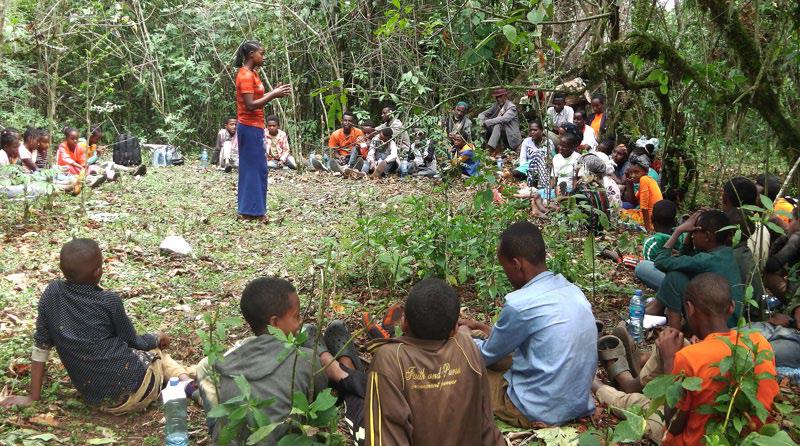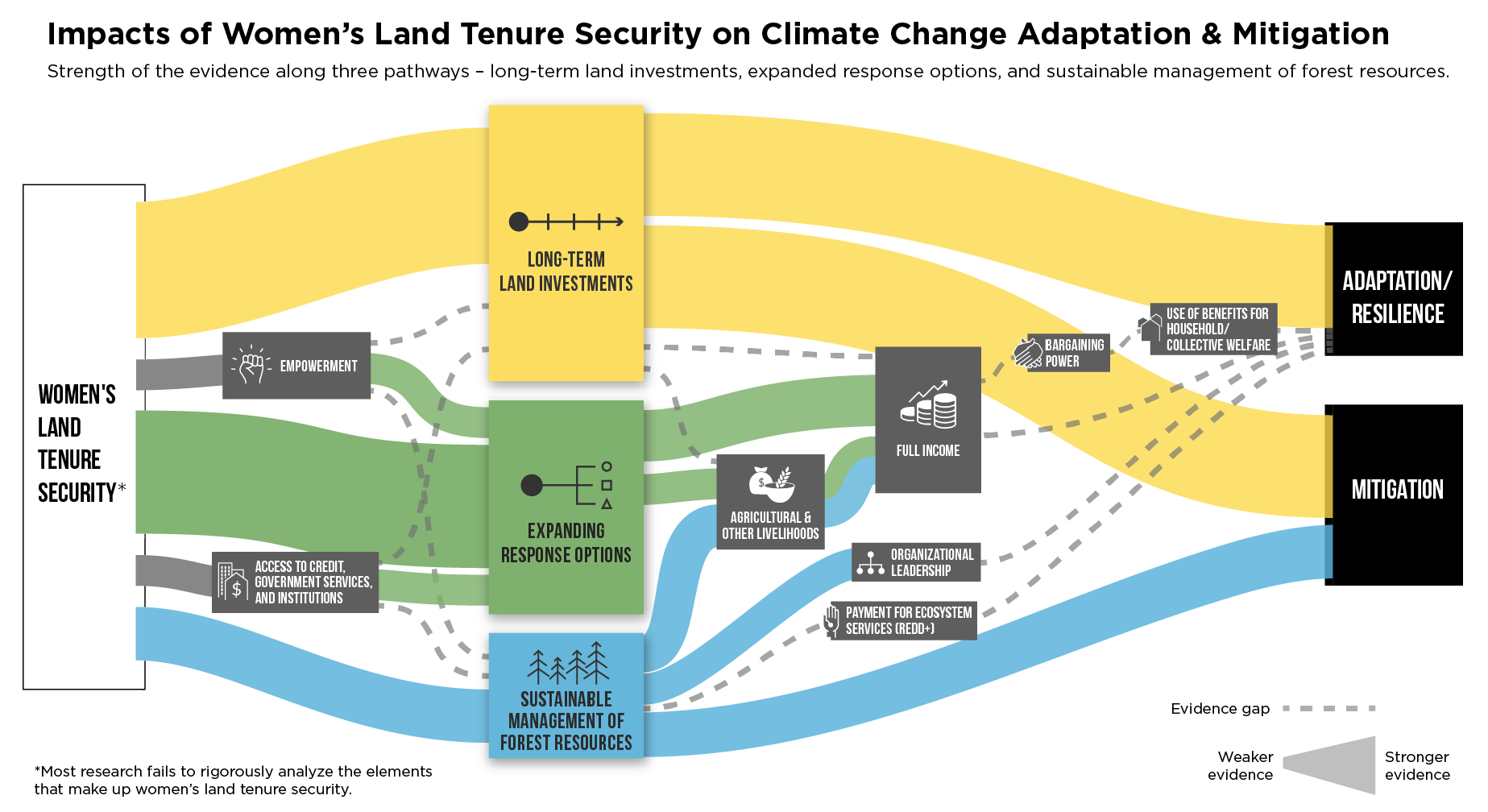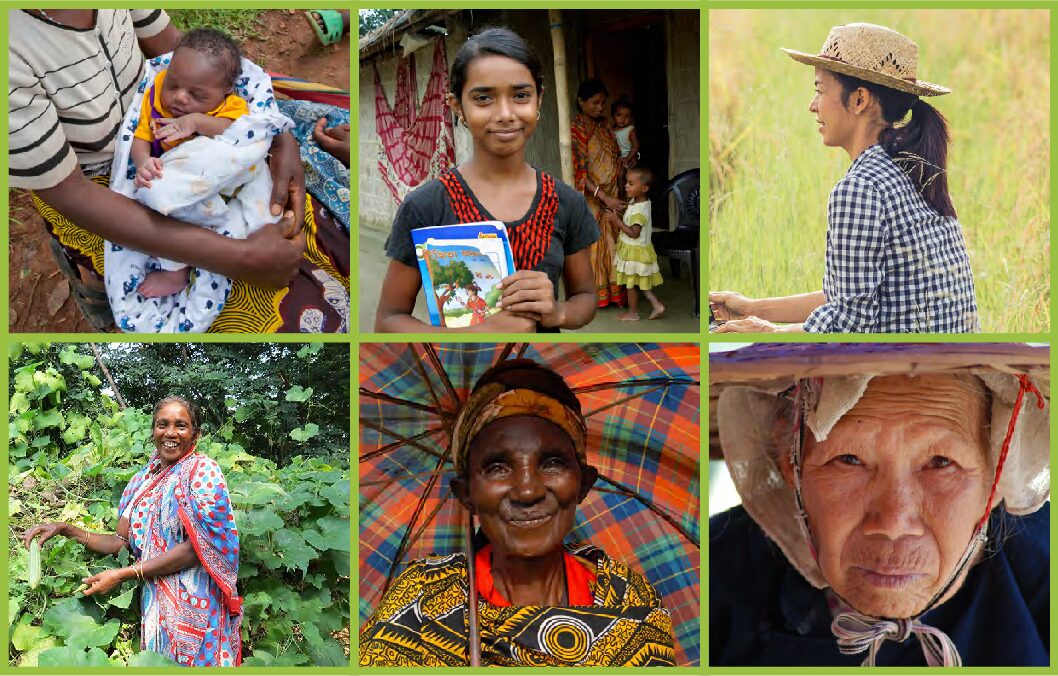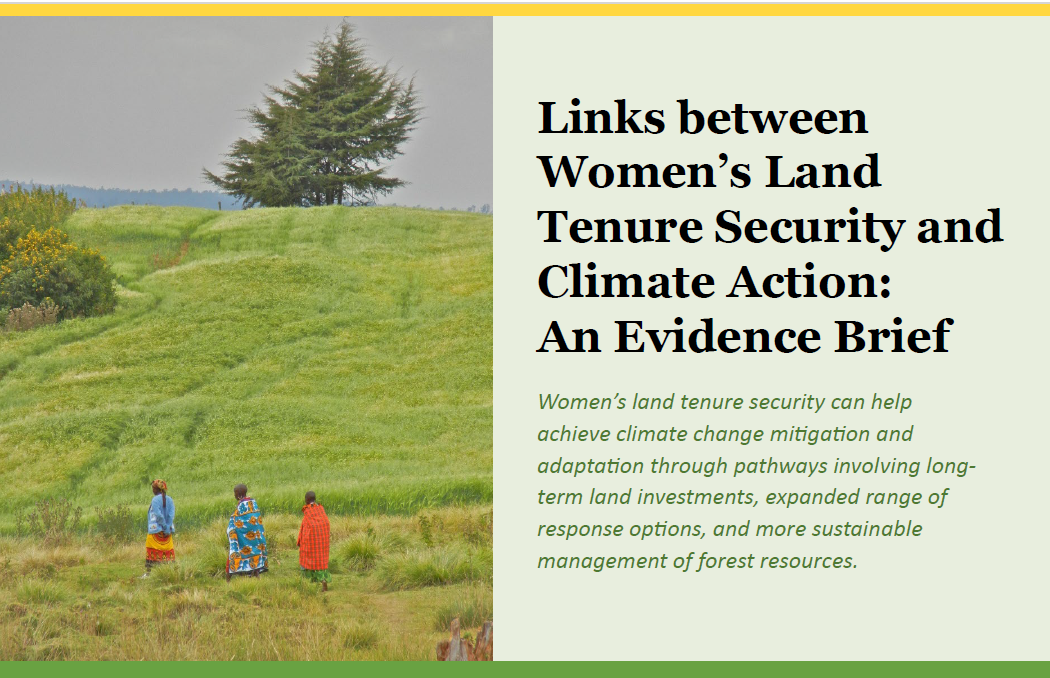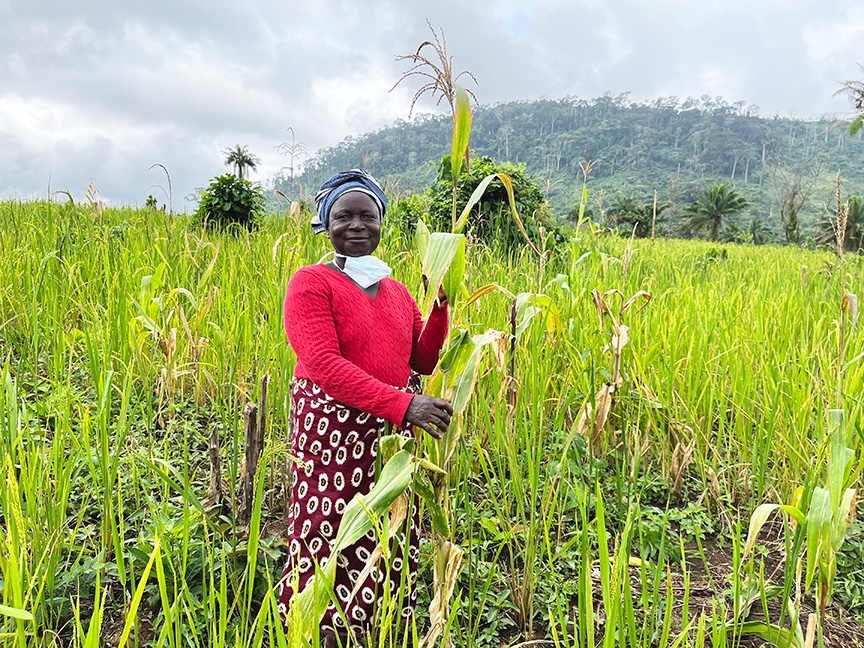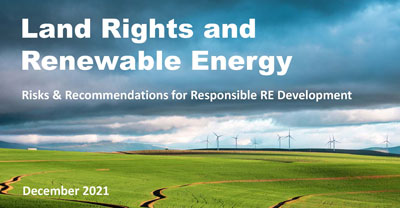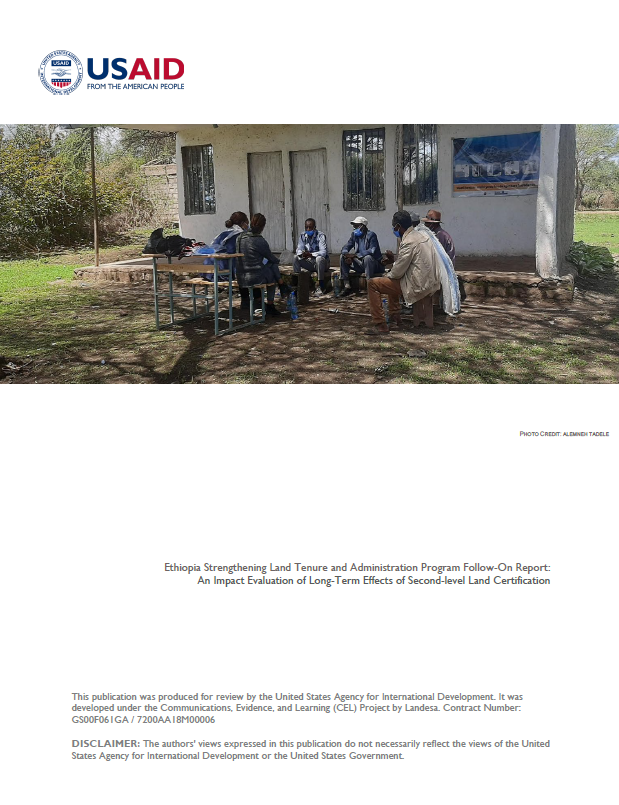Landesa conducts research throughout the world on issues to land rights and development. Search or browse our published articles, books, and reports.
Showing 161 results
Gender Learning Brief: Gender in Community Fisheries & Mangroves Management in Cambodia
This Learning Brief, co-authored with Parliamentary Centre of Asia, highlights findings from a baseline survey and qualitative assessments Landesa’s local
Blue Carbon: Assessing the Mitigation Potential of Strengthening Coastal Community Fisheries’ Tenure
A new Landesa report shows how strengthening local rights to manage coastal resources in Cambodia can protect livelihoods, restore mangrove
Evaluating mangrove community forestry outcomes: a mixed synthetic control and field-based approach
Landesa contributed to a peer-reviewed study comparing 50 coastal villages with community forest (CF) certification to 50 control villages, revealing
Women’s Land Rights in Ethiopia: Supporting Land Degradation Neutrality
Worldwide, human activities including agricultural expansion, deforestation, and livestock grazing are resulting in land degradation, affecting 3.2 billion people.
Women’s Land Tenure Security as a Pathway to Climate Change Mitigation and Adaptation
As research on the nexus of land tenure security and climate grows, a more fine-tuned focus on tenure security for
Land Empowers: Life-cycle approach to girls’ and women’s land rights
A life-cycle look at how women’s and girls’ relationship to land can lead to transformation or discrimination.
Links between Women’s Land Tenure Security and Climate Action: An Evidence Brief
Learn how women’s land tenure security helps achieve climate goals through long-term land investments, expanded range of response options, and
Respecting the Rights of Indigenous Peoples and Local Communities in Landscape Initiatives
Many challenges, such as deforestation, water management, land conflicts, labor rights, and smallholder support require collective action to address them
Land Rights and Renewable Energy: Risks & Recommendations for Responsible RE Development
Landesa looked into the land issues and risks of coal and renewable energy (particularly wind, solar, and geothermal) in seven
Ethiopia Strengthening Land Tenure and Administration Program Follow-On Report
This report presents findings from an evaluation of long-term impacts of the highly innovative and cost-effective Ethiopian land certification program
